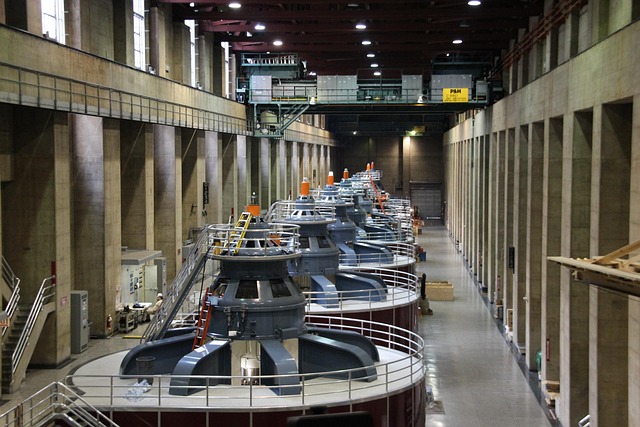High Temperature Industrial Heat Pumps: Revolutionizing Energy Efficiency
Industrial heat pumps are transforming the way businesses approach energy consumption and sustainability. These powerful systems, capable of operating at high temperatures, offer an innovative solution for industries seeking to reduce their carbon footprint and optimize their energy usage. In this article, we'll explore the world of high temperature industrial heat pumps, their applications, benefits, and the factors to consider when implementing this technology.

What are high temperature industrial heat pumps?
High temperature industrial heat pumps are advanced systems designed to efficiently transfer heat from one source to another, even at elevated temperatures. Unlike traditional heating methods, these heat pumps can upgrade low-grade waste heat into high-temperature process heat, making them invaluable in various industrial applications. By harnessing the principles of thermodynamics, these systems can achieve temperatures up to 160°C, meeting the demanding requirements of many industrial processes.
How do high temperature industrial heat pumps work?
High temperature industrial heat pumps operate on a closed-loop cycle, similar to refrigeration systems but optimized for higher temperatures. The process involves four main components: the evaporator, compressor, condenser, and expansion valve. The system extracts heat from a low-temperature source (such as ambient air or waste heat) and compresses it to raise the temperature. This high-temperature heat is then transferred to the industrial process that requires it. The cycle repeats, continuously moving heat from the source to the desired application with remarkable efficiency.
What are the benefits of using industrial heat pumps?
Industrial heat pumps offer numerous advantages for businesses looking to improve their energy efficiency and reduce operational costs. Firstly, they can significantly decrease energy consumption by utilizing waste heat that would otherwise be lost. This leads to substantial reductions in fuel usage and associated carbon emissions. Additionally, heat pumps provide a more consistent and controllable heat source compared to traditional boilers, resulting in improved process stability and product quality. The versatility of these systems also allows for both heating and cooling applications, making them a flexible solution for various industrial needs.
Where are high temperature industrial heat pumps commonly used?
High temperature industrial heat pumps find applications across a wide range of industries. In the food and beverage sector, they are used for processes such as pasteurization, sterilization, and drying. Chemical and pharmaceutical industries utilize these systems for distillation, evaporation, and reaction heating. The paper and pulp industry benefits from heat pumps in drying processes, while the textile industry uses them for dyeing and finishing. Additionally, district heating networks and large-scale buildings increasingly rely on industrial heat pumps for efficient space heating and hot water production.
What factors should be considered when choosing an industrial heat pump?
When selecting a high temperature industrial heat pump, several factors must be taken into account. The required temperature range and heating capacity are primary considerations, as they determine the size and type of heat pump needed. The availability and temperature of the heat source (e.g., ambient air, groundwater, or waste heat) also play a crucial role in system design. Energy efficiency, measured by the Coefficient of Performance (COP), is another important factor, as it directly impacts operational costs and environmental benefits. Additionally, the initial investment, maintenance requirements, and potential integration with existing systems should be carefully evaluated to ensure a successful implementation.
How much do industrial heat pumps cost?
The cost of industrial heat pumps can vary significantly depending on factors such as capacity, temperature requirements, and specific application. Generally, high temperature large scale heat pumps for industrial use represent a substantial investment, with prices ranging from £100,000 to over £1 million for large, custom systems. However, it’s important to consider the long-term savings and benefits when evaluating the cost.
Here’s a comparison of some industrial heat pump options:
| Product | Manufacturer | Capacity | Temperature Range | Estimated Cost |
|---|---|---|---|---|
| HeatBooster | Kobelco | 70-370 kW | Up to 120°C | £150,000 - £300,000 |
| Titan OM | Oilon | 100-2000 kW | Up to 120°C | £200,000 - £800,000 |
| NEATPUMP | Star Refrigeration | 350-14,000 kW | Up to 120°C | £300,000 - £2,000,000 |
| Eco-Max | Mitsubishi Heavy Industries | 60-370 kW | Up to 90°C | £100,000 - £250,000 |
Prices, rates, or cost estimates mentioned in this article are based on the latest available information but may change over time. Independent research is advised before making financial decisions.
Industrial heat pump manufacturers continue to innovate, pushing the boundaries of temperature ranges and efficiency. As technology advances and adoption increases, we can expect to see further improvements in performance and reductions in costs. For businesses considering the implementation of high temperature industrial heat pumps, conducting a thorough cost-benefit analysis and consulting with experienced providers is crucial to making an informed decision.
In conclusion, high temperature industrial heat pumps represent a powerful tool for industries seeking to enhance their energy efficiency and reduce environmental impact. By harnessing waste heat and upgrading it to useful temperatures, these systems offer a sustainable solution for a wide range of industrial processes. As energy costs rise and environmental regulations tighten, the adoption of industrial heat pump technology is likely to accelerate, driving further innovation in this critical field.




